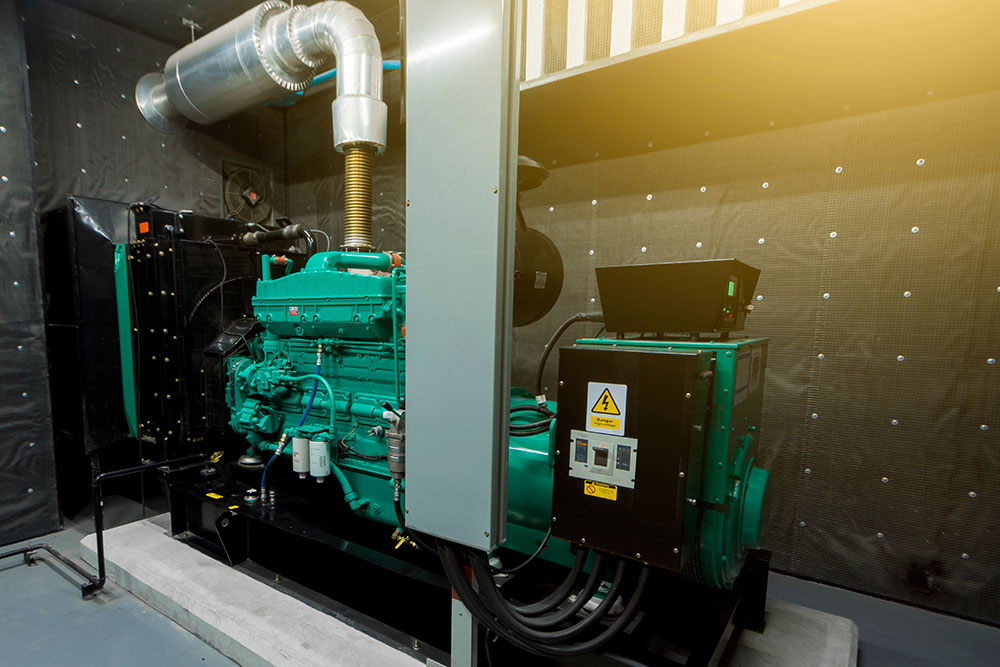According to a new report published by Allied Market Research, the generator sets market size was valued at $32.2 billion in 2022, and is estimated to reach $72.4 billion by 2032, growing at a CAGR of 8.2% from 2023 to 2032. The construction and mining industries heavily rely on generator sets to power equipment and tools in areas where grid access is limited or absent.
Generator sets also referred to as gensets, are robust power generation systems that offer a versatile and dependable source of electricity. These sets come in various sizes and configurations, providing solutions for both primary and backup power needs in diverse applications.
Gensets are composed of an engine that drives an electrical generator to produce electricity. They play a crucial role in ensuring continuous power supply in situations where grid power is unreliable, unavailable, or in remote locations.
Some of the main companies that produce gensets are Rolls-Royce plc, Ashok Leyland Limited, Mitsubishi Heavy Industries, Ltd., Greaves Cotton Ltd., Wartsila, Kohler Co., General Electric, Caterpillar Inc., Cummins Inc., and Doosan Corporation.
The generator sets market has witnessed significant evolution and growth due to several contributing factors. Firstly, the increase in global demand for continuous and backup power in critical sectors like healthcare, data centers, telecommunications, and manufacturing has been a driving force behind the market’s expansion.
The rising frequency and intensity of natural disasters and extreme weather events worldwide have emphasized the need for reliable backup power solutions, propelling the demand for generator sets.
The construction and mining industries heavily rely on generator sets to power equipment and tools in areas where grid access is limited or absent. These sets are also instrumental in providing temporary power solutions for events, outdoor activities, and remote infrastructure projects.

Generator sets offer numerous advantages. They provide immediate and reliable power, ensuring uninterrupted operations during power outages or in off-grid locations. They come in various power capacities, allowing for scalability and customization based on specific energy needs. Moreover, modern generator sets are designed to be more fuel-efficient and environmentally friendly, adhering to emission regulations and utilizing cleaner fuel technologies, such as natural gas or biodiesel.
The increase in integration of digital control systems and IoT (Internet of Things) technologies is expected to provide better monitoring, predictive maintenance, and operational optimization for generator sets. Collaboration between manufacturers, regulatory bodies, and end-users is driving innovation, and poised for further generator sets market growth, especially in industries where reliable power sources are critical for operations.
Challenges persist within the generator sets market. One significant constraint is related to environmental concerns and emissions. While newer models are more eco-friendly, older, or poorly maintained generator sets may produce higher emissions, impacting air quality and contributing to pollution.
Another challenge is the maintenance and operational costs associated with gensets, including fuel expenses, regular servicing, and repairs. This can add to the overall cost of ownership, making it a concern for businesses and the generator sets industry, especially in the long term.
In addition, noise pollution is a prevalent issue with generator sets. The operation of some gensets can be quite noisy, which can be a concern in residential areas or during events where quieter operation is required.
Despite these challenges, it presents promising generator sets market opportunities. Ongoing research and development efforts focus on improving fuel efficiency, reducing emissions, and exploring alternative fuel sources. Technological advancements, including the integration of smart and remote monitoring systems, aim to enhance efficiency and minimize operational costs. Manufacturers are also exploring hybrid solutions, combining gensets with renewable energy sources like solar and wind power, to create more sustainable and efficient power generation systems.
Based on power rating, the global generator sets market is divided into less than 50 kVA, 50-125 kVA, 125-200 kVA, 200-330 kVA, 330-750 kVA, and more than 750 kVA. Depending on the application, the market is segregated into standby, peak shaving, prime/continuous, and others.
Source: Allied Market Research
Read the full article here